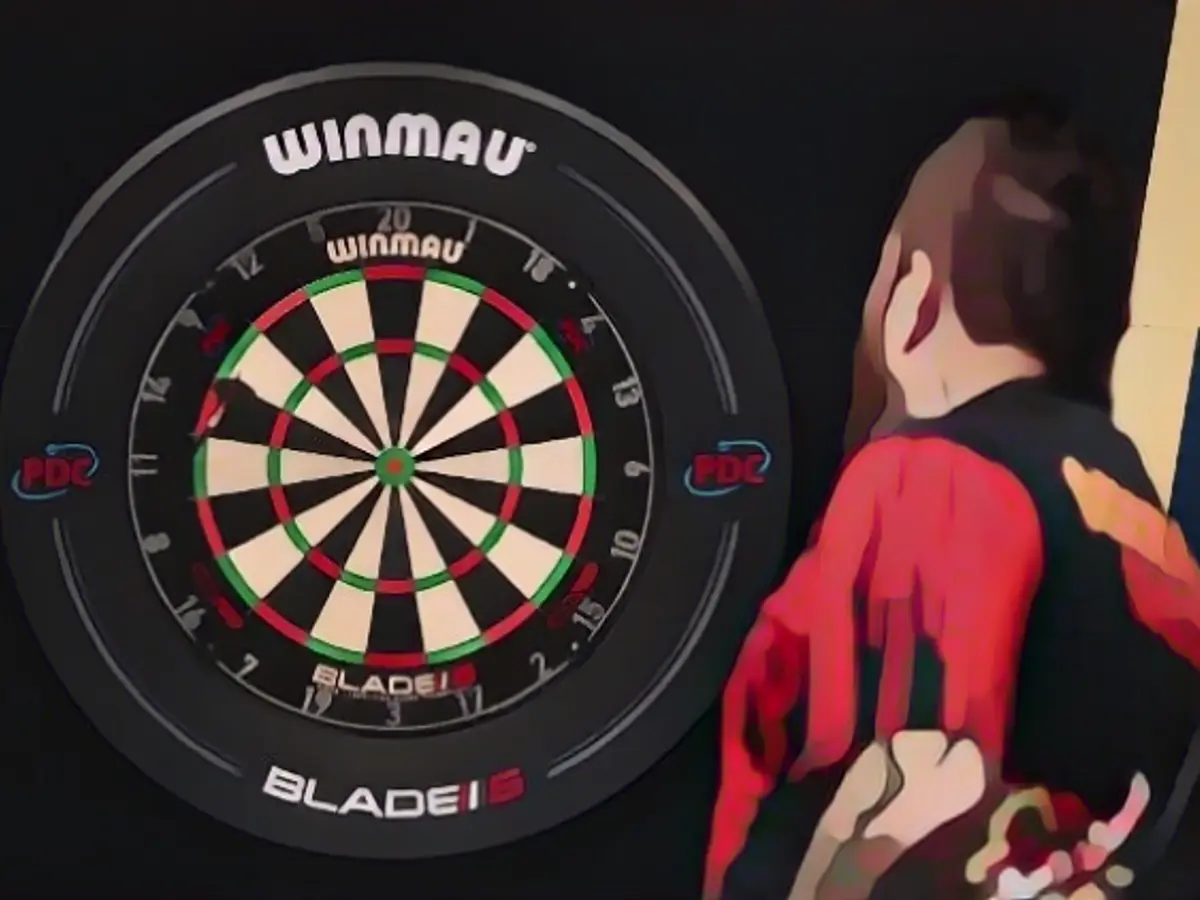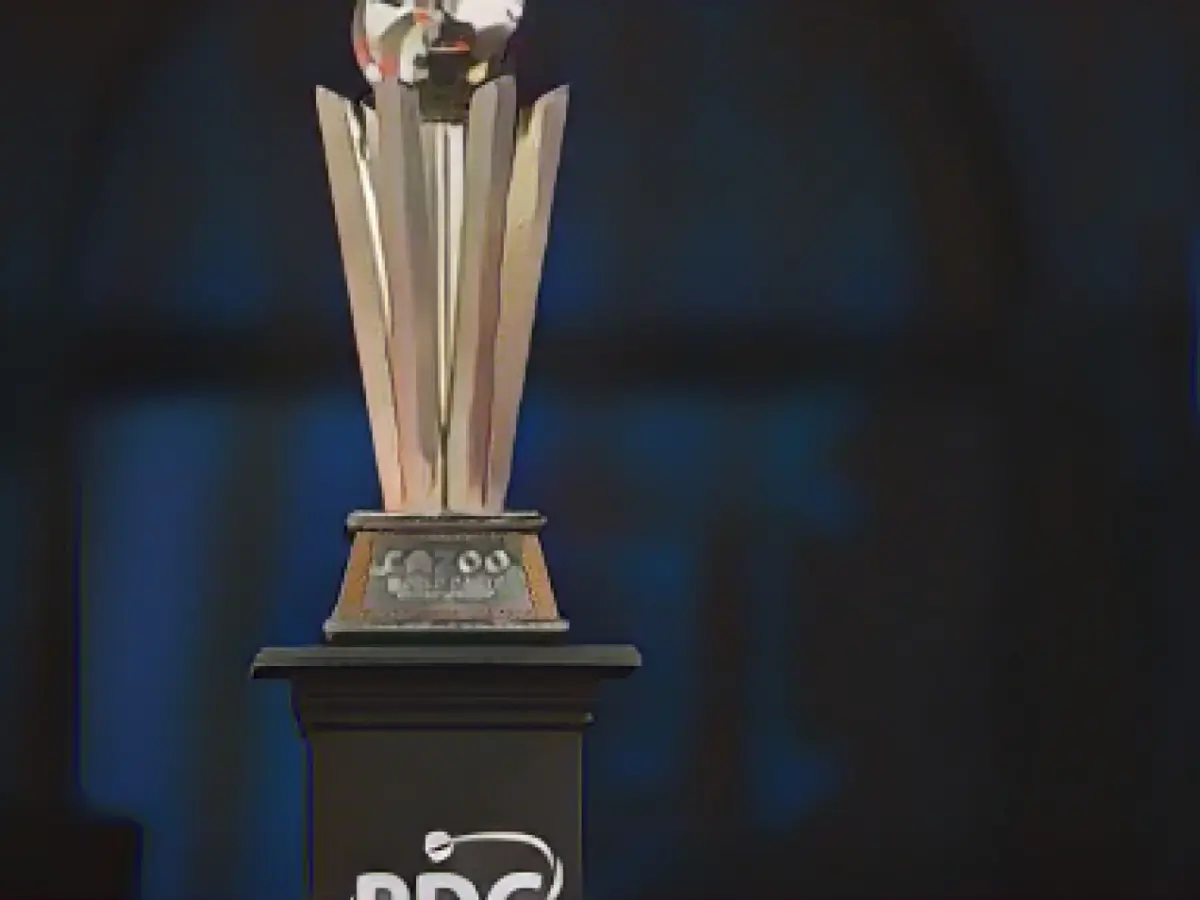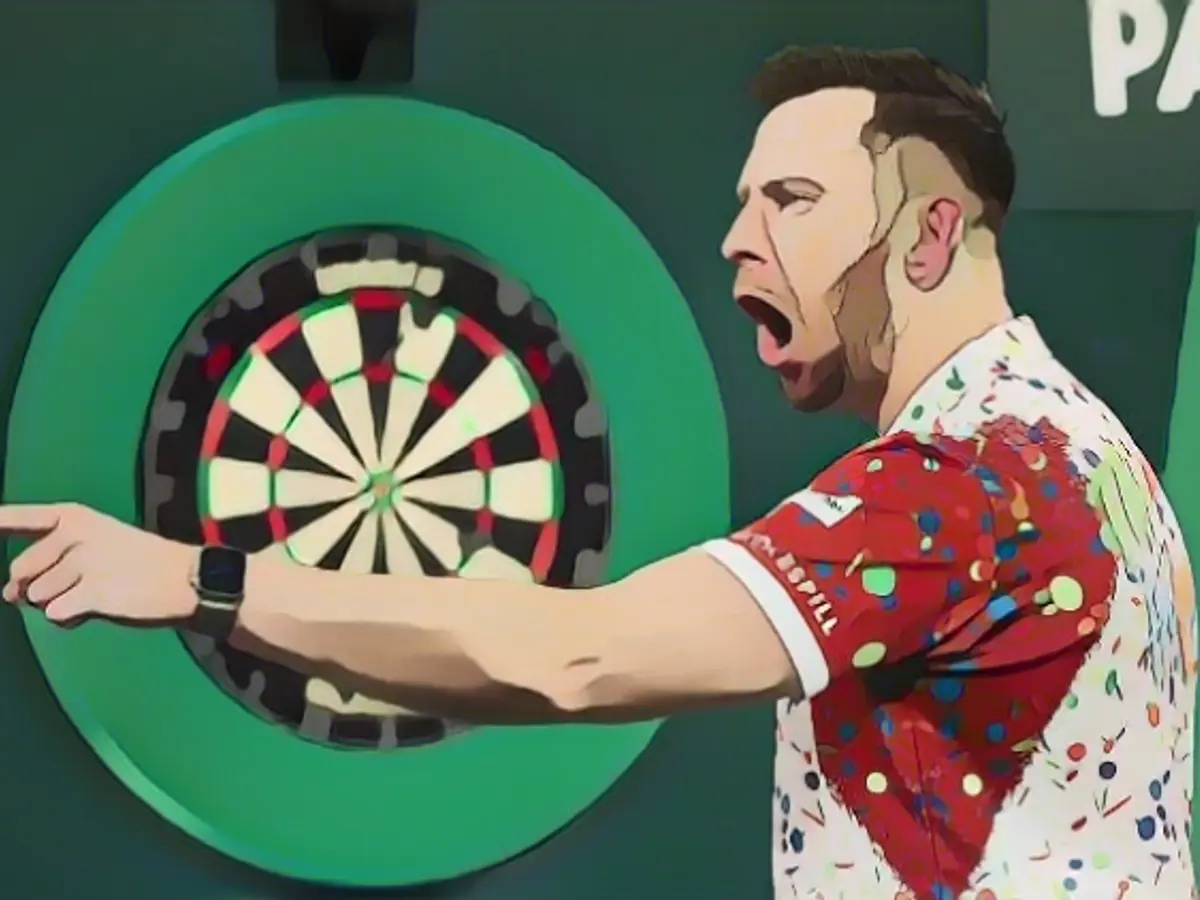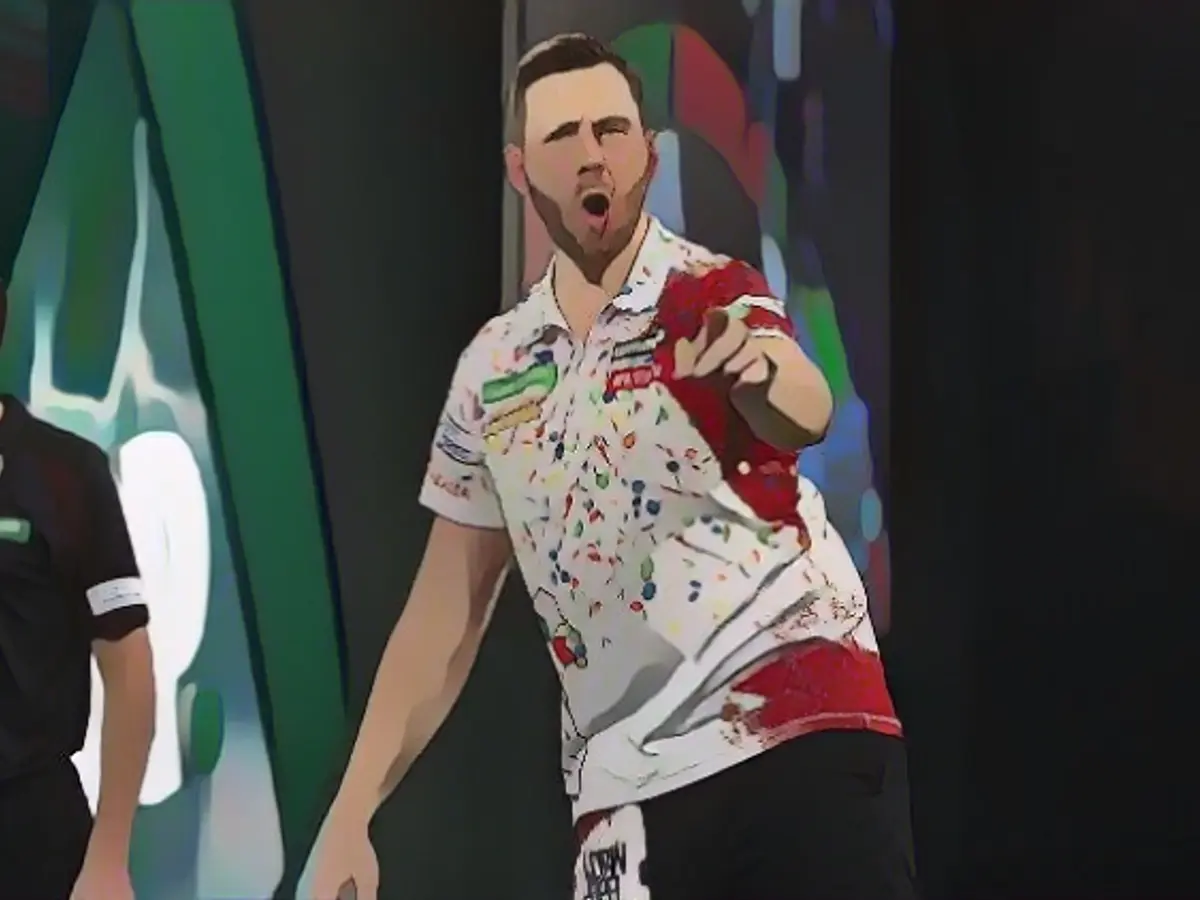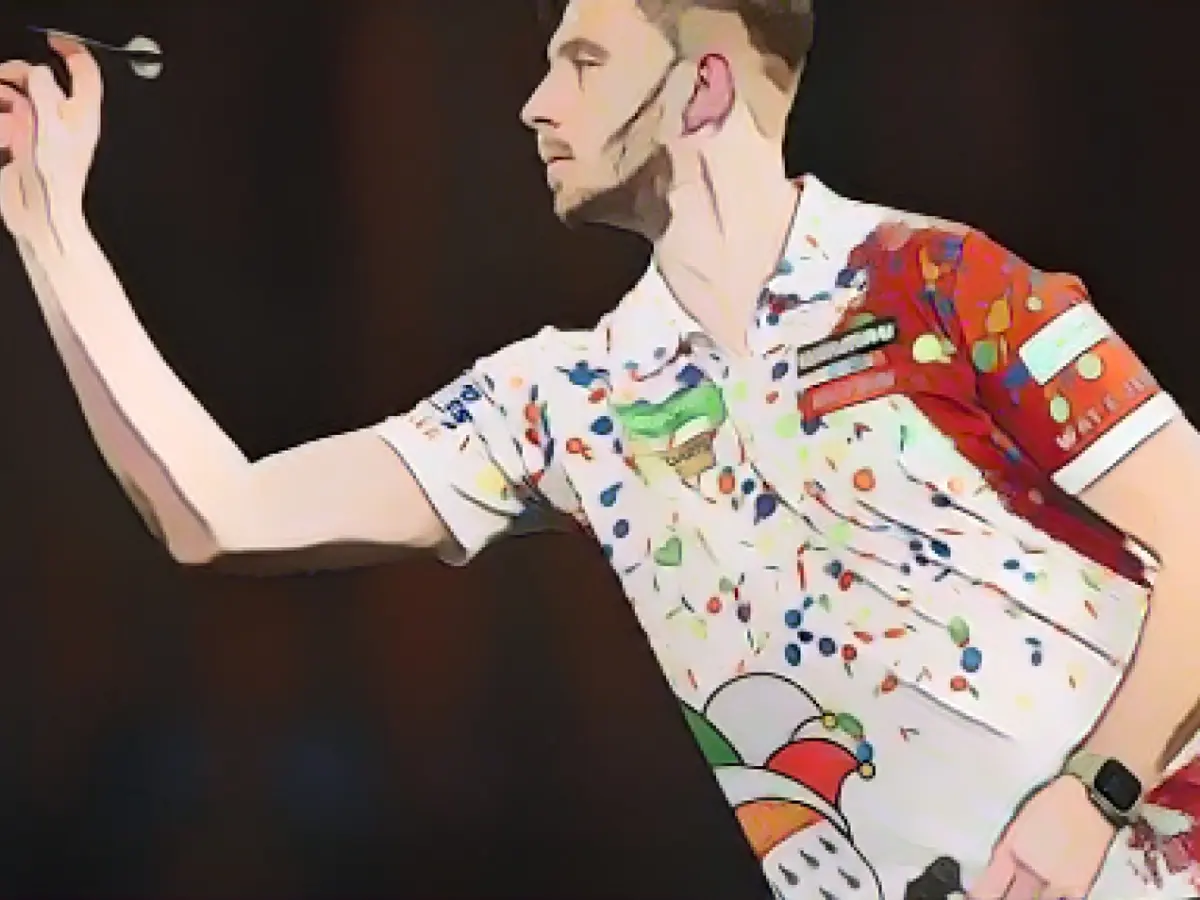Darts Boss: The Olympics is a Blatant Swindle for Athletes
If you ask some athletes, the Olympic Games is the pinnacle of their career. But darts boss Werner von Moltke isn't one of them. In fact, he considers the Olympics a raw deal for athletes.
In an interview eight days prior to the World Championship in late December 2024, von Moltke, the managing director of PDC Europe, didn't mince words when it came to his disdain for the International Olympic Committee (IOC). "The Olympics is a crime against athletes," he declared, referring to his belief that the mega-event unfairly exploits athletes and TV stations for profit.
Darts, which has reached an impressive level of popularity without the Olympics, wouldn't gain much from participating, von Moltke argued. He pointed out that darts had grown in importance without the Olympics and that Germany's number one darts player, Gabriel Clemens, would benefit more from competing in individual tournaments rather than in the Olympics.
But it's not just darts that's getting the short end of the stick, according to von Moltke. He argued that traditional Olympic sports like track and field, swimming, and gymnastics have been the financial losers of the past few decades. In fact, you won't find a single track and field athlete, swimmer, or gymnast on the Forbes list of highest-earning athletes.
The Olympics: A Profit Machine
If the Olympics is such a fantastic showcase for athletes and sport, then why aren't they making more money? Well, it's all in the numbers. According to von Moltke, the IOC rakes in billions in revenue from the games, yet the athletes see little to no prize money. This contradiction, in his eyes, makes the Olympics a raw deal for athletes.
But the issue isn't just financial. Von Moltke also criticized the fact that television stations reap the rewards of the Olympic Games every few years, while athletes bear the burden of training and competing year-round.
Is It Time for a Change?
Von Moltke's views are shared by some sports officials who question the value of the Olympic Games for athletes, particularly in light of the financial strain they face and the perceived lack of recognition they receive. Critics argue that sports like darts and golf require less physical exertion, and as a result, are not considered "true" sports. Additionally, they are not consistently competitive, and lack sufficient funding and sponsorship.
But are these criticisms fair? And if so, what can be done to change the system and ensure that athletes are being fairly compensated and recognized for their achievements?
Sources:
As the managing director of PDC Europe, Werner von Moltke took no sympathy towards the Olympic Games, calling them a "crime against athletes" for ignoring the financial compensation and recognition of darts and other traditional Olympic sports. According to von Moltke, the profit margins of the International Olympic Committee (IOC) are at the expense of athletes, who devote their lives to sports while earning significantly less than their counterparts in leagues like football, basketball, or golf.
Von Moltke is one of many sports officials who expresses resentment towards the Olympic Games, and his stance is backed up by observations of canoeists, judoka, and rowers at the games. These athletes have sacrificed their entire lives for a chance at Olympic glory, but often end up with little to show for their efforts. Indeed, classic Olympic sports like track and field, swimming, and gymnastics are notorious for producing low-earning athletes, even when they dominate their respective sports.
Nonetheless, the World Darts Championship began on December 15, 2024, featuring 96 participants and offering a prize pool of 2.5 million pounds. The tournament drew the attention of Germany's number one darts player, Gabriel Clemens, who anticipates the World Championship to be the biggest event of his career. While Clemens and other athletes stand to reap the financial benefits of tournaments like this, some still see the Olympic Games as an opportunity to raise their profile and establish themselves as worldwide champions.
Enrichment Data:
Criticisms levelled against Olympic sports often point to lack of physical exertion and competitive consistency. For instance, darts and golf are considered less demanding activities, with golf only requiring limited exertion and golfers able to compete into their old age. Furthermore, traditional Olympic sports like swimming and track and field face funding challenges and difficulties in acquiring sponsorships, due to internal conflicts and scandals.
An example of this is the World DanceSport Federation (WDSF), which criticised for misusing federation funds to promote traditional ballroom and Latin dances into the Olympics, leaving breaking in the dust and facing financial strain within the federation. This highlights the broader issues of value and fairness for Olympic sports, particularly when it comes to financial compensation, physical exertion, and competitive consistency.
